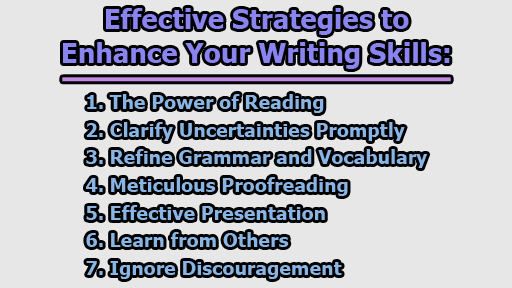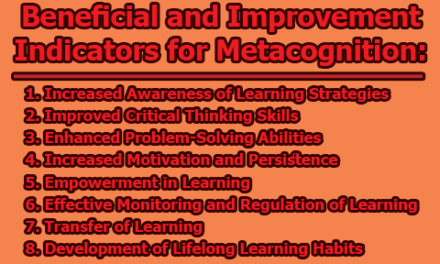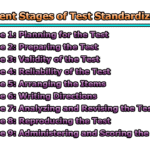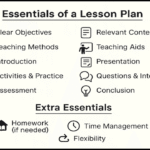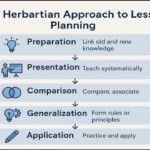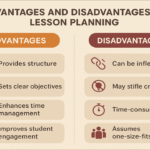Effective Strategies to Enhance Your Writing Skills:
Writing is a multifaceted skill that requires a combination of creativity, discipline, and a constant quest for improvement. Whether you’re a seasoned writer or just starting on your writing journey, there are always ways to enhance your skills. In this guide, we will explore a variety of effective strategies to enhance your writing skills. From the importance of reading and seeking clarification to refining grammar, meticulous proofreading, effective presentation, learning from others, and overcoming discouragement, each strategy plays a crucial role in developing a well-rounded writer.
1. The Power of Reading: The foundation of exceptional writing lies in being an avid and diverse reader. Reading not only exposes you to different writing styles and genres but also expands your vocabulary and refines your grammar. Fiction, non-fiction, poetry, and articles all contribute to your understanding of language nuances and storytelling techniques.
Reading broadens your perspective and introduces you to various writing structures and tones. By immersing yourself in different literary worlds, you absorb the intricacies of language, allowing you to apply these lessons to your own writing. The more you read, the more you develop an innate sense of how words can be crafted to create impact, evoke emotions, and convey complex ideas.
Moreover, reading also enhances your critical thinking skills. As you engage with different perspectives and ideas, you learn to analyze and evaluate content, a skill that is invaluable in crafting well-informed and compelling narratives. In the words of Stephen King, “If you want to be a writer, you must do two things above all: read a lot and write a lot.”
2. Clarify Uncertainties Promptly: Writing is an art, but it’s also a precise form of communication that demands clarity. Uncertainties can act as stumbling blocks to effective communication. It is crucial to address and clarify any doubts promptly.
Procrastination can hinder creativity and impede the development of writing skills. A writer should be proactive in seeking clarification. Whether it’s a grammatical rule, a word’s definition, or the proper usage of punctuation, immediate clarification ensures that doubts don’t snowball into barriers to effective communication.
Keeping a dictionary nearby or utilizing online resources can be immensely helpful. The goal is to remove obstacles to comprehension, allowing your ideas to flow seamlessly onto the page. This proactive approach not only aids in understanding the technical aspects of writing but also fosters a deeper connection with language, enriching your ability to express complex thoughts.
3. Refine Grammar and Vocabulary: Grammar and vocabulary are the bedrock of effective writing. A writer armed with a strong command of language can articulate ideas more precisely and persuasively. Refining grammar and expanding vocabulary should be ongoing pursuits for any writer.
To enhance your grammar skills, consider adopting innovative approaches. Engage in language games, participate in writing exercises, and study style guides. These activities not only make the learning process enjoyable but also reinforce grammatical rules in practical contexts.
Expanding your vocabulary involves more than memorizing words; it’s about understanding their nuances and appropriate usage. Regularly exposing yourself to diverse literature, both classic and contemporary, can introduce you to new words and idioms. Make a habit of noting down unfamiliar words, understanding their meanings, and incorporating them into your writing.
Additionally, challenge yourself to experiment with language. Write in different genres, adopt various tones, and explore creative ways to express ideas. This not only keeps your writing dynamic but also deepens your understanding of language versatility.
4. Meticulous Proofreading: Grammatical errors and typos can undermine the impact of even the most compelling ideas. Proofreading is not just a formality; it’s a crucial step that ensures your writing is clear, polished, and professional.
Set aside dedicated time for proofreading after completing your initial draft. Reading your work with fresh eyes allows you to catch errors and refine phrasing. Consider reading your writing aloud; this can help you identify awkward sentences, grammatical issues, and typos.
It’s also beneficial to use digital tools, such as grammar-checking software, but don’t solely rely on them. Automated tools might miss context-specific errors, and a human touch is essential for nuanced writing.
Beyond correcting errors, proofreading is an opportunity to refine your writing style. Consider the flow of your sentences, the coherence of your paragraphs, and the overall structure of your piece. Meticulous proofreading not only enhances the clarity of your writing but also demonstrates your commitment to delivering high-quality content.
5. Effective Presentation: Writing is not only about crafting compelling sentences; it’s also about presenting ideas in a structured and engaging manner. Effective presentation is crucial for capturing and retaining your reader’s attention.
Begin with a captivating introduction that sets the tone for your piece. Whether it’s an anecdote, a thought-provoking question, or a bold statement, the introduction should entice your readers and make them eager to explore further.
Organize your thoughts into well-structured paragraphs. Each paragraph should focus on a single idea, contributing to the overall coherence of your piece. Avoid lengthy paragraphs, as they can overwhelm readers. Instead, break down your content into digestible sections, ensuring a smooth and enjoyable reading experience.
Pay attention to the flow of your writing. Transition smoothly between ideas, guiding your readers through a logical progression of thoughts. A well-structured piece not only aids comprehension but also showcases your mastery of the subject matter.
Conclude your writing with a strong and relevant summary. Reinforce your main points, leaving a lasting impression on your readers. A well-crafted conclusion not only wraps up your piece effectively but also reinforces the value of your ideas.
6. Learn from Others: In the journey of enhancing your writing skills, other authors can be your greatest teachers. Studying the works of established writers provides valuable insights into different writing styles, techniques, and approaches.
Create a list of authors who inspire you. Analyze their works to understand what makes their writing stand out. Is it their use of metaphor, their ability to evoke emotions, or their mastery of dialogue? Identify the elements that resonate with you and consider how you can incorporate similar techniques into your writing.
Reading critically involves not only enjoying a good story but also dissecting the mechanics of storytelling. Pay attention to plot structure, character development, and narrative pacing. Understanding how successful authors navigate these elements can inform and elevate your own writing.
Moreover, seek feedback from peers and mentors. Constructive criticism provides valuable perspectives and helps you identify areas for improvement. Embrace the opportunity to learn from both successes and challenges, refining your skills with each writing endeavor.
7. Ignore Discouragement: Embarking on a writing journey often invites skepticism and discouragement from others. Not everyone will understand or appreciate your creative pursuits, and it’s essential to develop resilience in the face of criticism.
Devi S. Laskar aptly notes, “All of my writer friends and I have one thing in common: we didn’t listen to naysayers. We kept writing. And eventually, we have all been published.” This resilience is a common trait among successful writers.
It’s important to recognize that writing is a subjective art form. What resonates with one person may not appeal to another, and that’s perfectly acceptable. Don’t let the opinions of others derail your passion or deter you from pursuing your creative goals.
Instead of dwelling on criticism, focus on your commitment to growth. View feedback as an opportunity to refine your skills and evolve as a writer. Surround yourself with a supportive community of fellow writers who understand the challenges and triumphs of the creative process.
In conclusion, becoming a skilled writer is a journey of continuous improvement and self-discovery. The strategies outlined in this comprehensive guide provide a roadmap for honing your craft. Whether you are refining your grammar and vocabulary, perfecting the art of presentation, or drawing inspiration from other writers, each strategy contributes to your growth as a writer.
Remember, writing is not a destination; it’s a process. Embrace the joy of experimentation, learn from both successes and setbacks, and celebrate the evolution of your writing style. By incorporating these effective strategies into your writing routine, you’ll not only enhance your skills but also embark on a fulfilling and lifelong journey of creative expression.
Frequently Asked Questions (FAQs):
How can reading help improve my writing skills?
Reading exposes you to various writing styles, expands your vocabulary, and enhances your understanding of grammar. It provides insights into storytelling techniques and helps you absorb different perspectives, ultimately contributing to the improvement of your writing skills.
Why is seeking clarification important in writing?
Seeking clarification promptly is crucial to remove doubts that might hinder effective communication. Proactively addressing uncertainties ensures a deeper understanding of language, enriching your ability to express complex thoughts and ideas.
What are some practical ways to refine grammar and vocabulary?
Engage in language games, participate in writing exercises, and study style guides to refine your grammar. To expand your vocabulary, read diverse literature, note down unfamiliar words, and experiment with incorporating them into your writing.
How important is meticulous proofreading in the writing process?
Meticulous proofreading is essential as it ensures your writing is clear, polished, and professional. It goes beyond error correction, offering an opportunity to refine your writing style, improve sentence flow, and enhance overall clarity.
What role does effective presentation play in writing?
Effective presentation is crucial for capturing and retaining your reader’s attention. A well-structured piece with a captivating introduction, organized paragraphs, smooth transitions, and a strong conclusion not only aids comprehension but also showcases your mastery of the subject matter.
How can I learn from other writers to improve my skills?
Study the works of established authors to gain insights into different writing styles, techniques, and approaches. Analyze what makes their writing compelling and consider how you can incorporate similar techniques into your own work. Seek feedback from peers and mentors to further refine your skills.
How do I handle discouragement from others while pursuing writing?
Ignore discouragement and focus on your passion for writing. Recognize that writing is subjective, and not everyone will appreciate your creative pursuits. Develop resilience, view feedback as an opportunity for growth, and surround yourself with a supportive community of fellow writers who understand the challenges and triumphs of the creative process.
Can anyone become a successful writer with practice and dedication?
Yes, success in writing often comes with dedication, practice, and a continuous commitment to improvement. As Devi S. Laskar notes, successful writers share a common trait of perseverance, often continuing to write despite naysayers and challenges.
How can I make my writing more engaging for readers?
Craft a captivating introduction, break down your content into well-structured paragraphs, ensure smooth transitions between ideas, and conclude with a strong and relevant summary. Engage your readers with a mix of storytelling techniques, varied sentence structures, and an authentic voice.
Is writing a skill that can be learned over time?
Yes, writing is a skill that can be developed and refined over time with consistent practice, exposure to diverse literature, and a willingness to learn from both successes and challenges. It’s a continuous process of growth and self-discovery.

Assistant Teacher at Zinzira Pir Mohammad Pilot School and College

